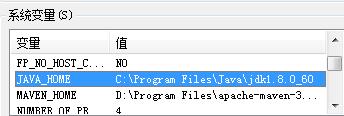In MySQL, how do I get a list of all foreign key constraints pointing to a particular table? a particular column? This is the same thing as this Oracle question, but for MySQL.
问题:
回答1:
For a Table:
SELECT
TABLE_NAME,COLUMN_NAME,CONSTRAINT_NAME, REFERENCED_TABLE_NAME,REFERENCED_COLUMN_NAME
FROM
INFORMATION_SCHEMA.KEY_COLUMN_USAGE
WHERE
REFERENCED_TABLE_SCHEMA = \'<database>\' AND
REFERENCED_TABLE_NAME = \'<table>\';
For a Column:
SELECT
TABLE_NAME,COLUMN_NAME,CONSTRAINT_NAME, REFERENCED_TABLE_NAME,REFERENCED_COLUMN_NAME
FROM
INFORMATION_SCHEMA.KEY_COLUMN_USAGE
WHERE
REFERENCED_TABLE_SCHEMA = \'<database>\' AND
REFERENCED_TABLE_NAME = \'<table>\' AND
REFERENCED_COLUMN_NAME = \'<column>\';
Basically, we changed REFERENCED_TABLE_NAME with REFERENCED_COLUMN_NAME in the where clause.
回答2:
EDIT: As pointed out in the comments, this is not the correct answer to the OPs question, but it is useful to know this command. This question showed up in Google for what I was looking for, and figured I\'d leave this answer for the others to find.
SHOW CREATE TABLE `<yourtable>`;
I found this answer here: MySQL : show constraints on tables command
I needed this way because I wanted to see how the FK functioned, rather than just see if it existed or not.
回答3:
If you use InnoDB and defined FK\'s you could query the information_schema database e.g.:
SELECT * FROM information_schema.TABLE_CONSTRAINTS
WHERE information_schema.TABLE_CONSTRAINTS.CONSTRAINT_TYPE = \'FOREIGN KEY\'
AND information_schema.TABLE_CONSTRAINTS.TABLE_SCHEMA = \'myschema\'
AND information_schema.TABLE_CONSTRAINTS.TABLE_NAME = \'mytable\';
回答4:
Posting on an old answer to add some useful information.
I had a similar problem, but I also wanted to see the CONSTRAINT_TYPE along with the REFERENCED table and column names. So,
To see all FKs in your table:
USE \'<yourschema>\'; SELECT i.TABLE_NAME, i.CONSTRAINT_TYPE, i.CONSTRAINT_NAME, k.REFERENCED_TABLE_NAME, k.REFERENCED_COLUMN_NAME FROM information_schema.TABLE_CONSTRAINTS i LEFT JOIN information_schema.KEY_COLUMN_USAGE k ON i.CONSTRAINT_NAME = k.CONSTRAINT_NAME WHERE i.CONSTRAINT_TYPE = \'FOREIGN KEY\' AND i.TABLE_SCHEMA = DATABASE() AND i.TABLE_NAME = \'<yourtable>\';To see all the tables and FKs in your schema:
USE \'<yourschema>\'; SELECT i.TABLE_NAME, i.CONSTRAINT_TYPE, i.CONSTRAINT_NAME, k.REFERENCED_TABLE_NAME, k.REFERENCED_COLUMN_NAME FROM information_schema.TABLE_CONSTRAINTS i LEFT JOIN information_schema.KEY_COLUMN_USAGE k ON i.CONSTRAINT_NAME = k.CONSTRAINT_NAME WHERE i.CONSTRAINT_TYPE = \'FOREIGN KEY\' AND i.TABLE_SCHEMA = DATABASE();To see all the FKs in your database:
SELECT i.TABLE_SCHEMA, i.TABLE_NAME, i.CONSTRAINT_TYPE, i.CONSTRAINT_NAME, k.REFERENCED_TABLE_NAME, k.REFERENCED_COLUMN_NAME FROM information_schema.TABLE_CONSTRAINTS i LEFT JOIN information_schema.KEY_COLUMN_USAGE k ON i.CONSTRAINT_NAME = k.CONSTRAINT_NAME WHERE i.CONSTRAINT_TYPE = \'FOREIGN KEY\';
Remember!
This is using the InnoDB storage engine. If you can\'t seem to get any foreign keys to show up after adding them it\'s probably because your tables are using MyISAM.
To check:
SELECT * TABLE_NAME, ENGINE FROM information_schema.TABLES WHERE TABLE_SCHEMA = \'<yourschema>\';
To fix, use this:
ALTER TABLE `<yourtable>` ENGINE=InnoDB;
回答5:
As an alternative to Node’s answer, if you use InnoDB and defined FK’s you could query the information_schema database e.g.:
SELECT CONSTRAINT_NAME, TABLE_NAME, REFERENCED_TABLE_NAME
FROM information_schema.REFERENTIAL_CONSTRAINTS
WHERE CONSTRAINT_SCHEMA = \'<schema>\'
AND TABLE_NAME = \'<table>\'
for foreign keys from <table>, or
SELECT CONSTRAINT_NAME, TABLE_NAME, REFERENCED_TABLE_NAME
FROM information_schema.REFERENTIAL_CONSTRAINTS
WHERE CONSTRAINT_SCHEMA = \'<schema>\'
AND REFERENCED_TABLE_NAME = \'<table>\'
for foreign keys to <table>
You can also get the UPDATE_RULE and DELETE_RULE if you want them.
回答6:
This solution will not only display all relations but also the constraint name, which is required in some cases (e.g. drop contraint):
select
concat(table_name, \'.\', column_name) as \'foreign key\',
concat(referenced_table_name, \'.\', referenced_column_name) as \'references\',
constraint_name as \'constraint name\'
from
information_schema.key_column_usage
where
referenced_table_name is not null;
If you want to check tables in a specific database, at the end of the query add the table name:
select
concat(table_name, \'.\', column_name) as \'foreign key\',
concat(referenced_table_name, \'.\', referenced_column_name) as \'references\',
constraint_name as \'constraint name\'
from
information_schema.key_column_usage
where
referenced_table_name is not null
and table_schema = \'database_name\';
Likewise, for a specific column name, add
and table_name = \'table_name
at the end of the query.
Inspired by this post here
回答7:
A quick way to list your FKs (Foreign Key references) using the
KEY_COLUMN_USAGE view:
SELECT CONCAT( table_name, \'.\',
column_name, \' -> \',
referenced_table_name, \'.\',
referenced_column_name ) AS list_of_fks
FROM information_schema.KEY_COLUMN_USAGE
WHERE REFERENCED_TABLE_SCHEMA = (your schema name here)
AND REFERENCED_TABLE_NAME is not null
ORDER BY TABLE_NAME, COLUMN_NAME;
This query does assume that the constraints and all referenced and referencing tables are in the same schema.
Add your own comment.
Source: the official mysql manual.
回答8:
To find all tables containing a particular foreign key such as employee_id
SELECT DISTINCT TABLE_NAME
FROM INFORMATION_SCHEMA.COLUMNS
WHERE COLUMN_NAME IN (\'employee_id\')
AND TABLE_SCHEMA=\'table_name\';
回答9:
Using REFERENCED_TABLE_NAME does not always work and can be a NULL value. The following query can work instead:
select * from INFORMATION_SCHEMA.KEY_COLUMN_USAGE where TABLE_NAME = \'<table>\';
回答10:
The solution I came up with is fragile; it relies on django\'s naming convention for foreign keys.
USE information_schema;
tee mysql_output
SELECT * FROM TABLE_CONSTRAINTS WHERE CONSTRAINT_TYPE = \'FOREIGN KEY\' AND TABLE_SCHEMA = \'database_name\';
notee
Then, in the shell,
grep \'refs_tablename_id\' mysql_output
回答11:
If you also want to get the name of the foreign key column:
SELECT i.TABLE_SCHEMA, i.TABLE_NAME,
i.CONSTRAINT_TYPE, i.CONSTRAINT_NAME,
k.COLUMN_NAME, k.REFERENCED_TABLE_NAME, k.REFERENCED_COLUMN_NAME
FROM information_schema.TABLE_CONSTRAINTS i
LEFT JOIN information_schema.KEY_COLUMN_USAGE k
ON i.CONSTRAINT_NAME = k.CONSTRAINT_NAME
WHERE i.TABLE_SCHEMA = \'<TABLE_NAME>\' AND i.CONSTRAINT_TYPE = \'FOREIGN KEY\'
ORDER BY i.TABLE_NAME;



